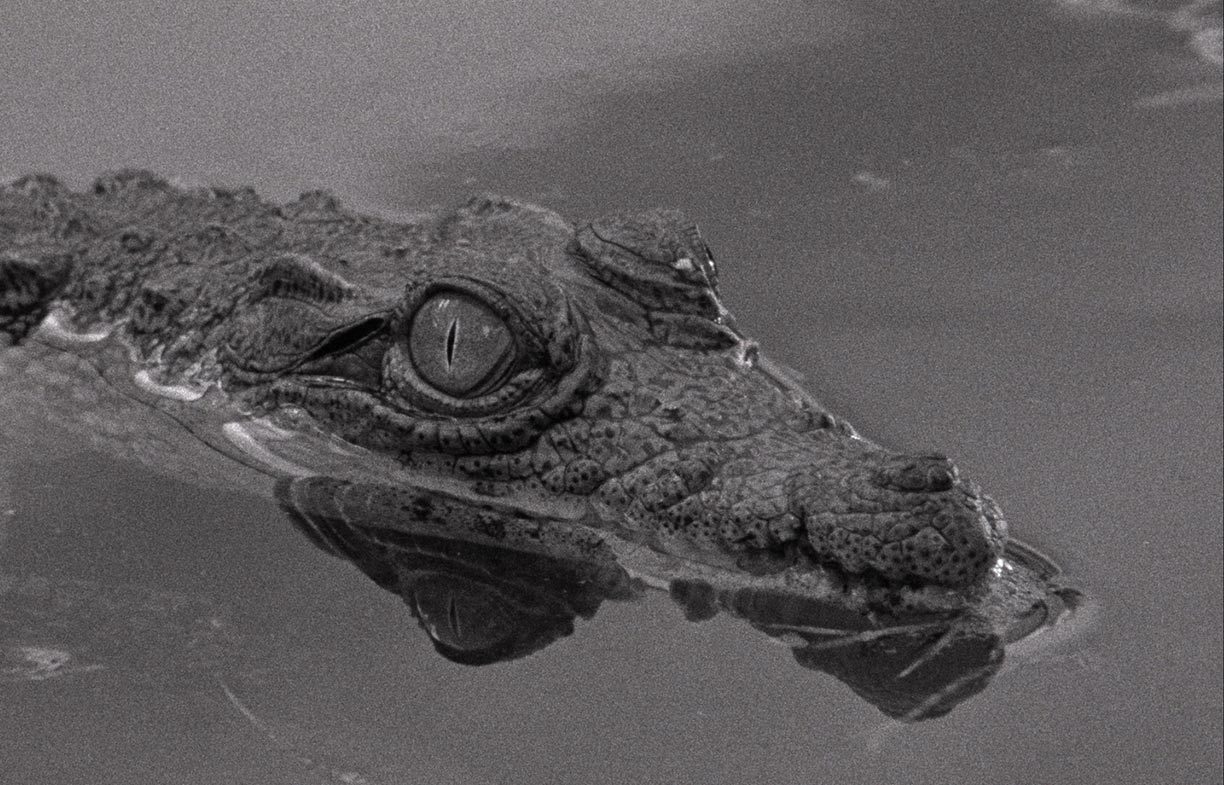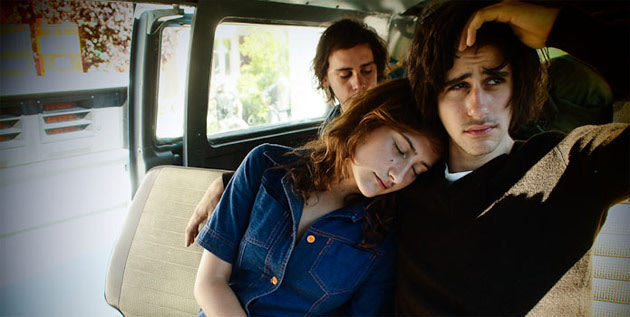Director: Terence Davies
Runtime: 98 minutes
Terence Davies' The Deep Blue Sea is a subtle and understated film, one that takes some of the subject matter present in Anna Karenina and renders it on a much smaller scale. Yet even though Davies' film earns points for its graceful maturity, it lacks both passion and insight. Though capably led by Rachel Weisz and Tom Hiddleston, Sea is merely an adequate relationship drama that, only on occaision, displays any remarkable feats of film making or acting.
Weisz is Hester Collyer, wife of a prominent judge named William (Simon Russel-Beale) in post-WWII London. She engages in an affair with a troubled RAF pilot named Freddie (Hiddleston), which inevitably sets off a series of struggles. Yet where Davies, who also adapted the screenplay from Terence Rattigan's play hits the nail on the head is in his pacing of the story. Hester and Freddie's affair is discovered quite early, and the film is more about the ramifications that ensue when Hester leaves her husband to live with Freddie. Like the stoic Karenin, William allows his wife to do as she pleases, without giving her the satisfaction of a divorce. Rather than convince her to come back, or act maliciously towards her, he simply bows out, leaving her to think on her alleged sins.
Yet all is not well between the semi-liberated lovers. Hester struggles with her guilt over what she's done to William. At times her love for Freddie sustains her. And other times, as indicated in the elegant opening sequence, it can't. Unfortunately, though Hester's struggle takes center stage, it is often less compelling than the lives of those around her. The subtlety is admirable, yet it gets in the way of the film's establishment of Hester and William's marriage, and why it doesn't provide the love Hester desires. At one point, Hester even confesses that physical love is all that matters to her, which does little to make her more sympathetic. The film never really follows up on this point either, thereby leaving an intriguing angle completely unexplored.
Hiddleston's Freddie, much like William, gets the short end of the stick when it comes to depth. As such, Freddie's sudden bouts of anger are jarring and unconvincing. Freddie's involvement in the war is hazily sketched out, and the reasons for his inner turmoil barely touched upon. So even though the small moments between Freddie and Hester come off nicely, the film neglects the big picture angles, which eventually catches up with the piece on the whole.
As the film's center, Weisz gives a consistent turn, and thankfully avoids the awkward shifts of her work in The Bourne Legacy. Let at the same time, perhaps due somewhat to the writing, she never quite digs into Hester's issues beyond the obvious. Many moments that could have been subtle and laced with buried emotion instead give the impression that Weisz only got a millimeter beneath the character's skin, and then stopped cold. The performance is often adequate, yet Weisz never turns Hester's mix of emotional turmoil and British reserve into a compelling person to watch and follow.
All in all, it's a shame, because Davies, at least as a director, deserves quite a bit of credit for his adaptation. The camera work flows elegantly, giving a sense of life to scenes that mostly involve people standing, sitting, and talking. There's also a lovely and delicately executed scene - a single shot - of Hester and William watching a group of singers in a tube station as German planes pound the city with bombs. It's a striking moment, yet unfortunately, it has nothing to support it. Much in the vein of Luca Guadagnino's I am Love, the reasons for the protagonist's affair feel too slight, and too thinly sketched out. Whereas Tilda Swinton's Eva at least had an army of snobby family members supposedly suffocating her, Hester only has William's elitist mother. She's a snob, yes, but the old woman is hardly capable of oppressing anyone, considering that William married Hester without too much trouble.
Once again, the big picture issues hound the film. Without a truly compelling sense of either Hester or her motives, there's little to latch onto or ponder once the credits roll. The elegance and maturity of the execution is wholly commendable, and at the very least keeps the journey interesting, as Davies refuses to have people spell things out for the audience. Yet all the same, all of the elegant camera work and beautiful music can't cover up the film's omnipresent vagueness, which ultimately does it in. For a film titled The Deep Blue Sea, Davies' latest is sadly lacking in depth, and on multiple fronts.
Grade: C+
Hiddleston's Freddie, much like William, gets the short end of the stick when it comes to depth. As such, Freddie's sudden bouts of anger are jarring and unconvincing. Freddie's involvement in the war is hazily sketched out, and the reasons for his inner turmoil barely touched upon. So even though the small moments between Freddie and Hester come off nicely, the film neglects the big picture angles, which eventually catches up with the piece on the whole.
As the film's center, Weisz gives a consistent turn, and thankfully avoids the awkward shifts of her work in The Bourne Legacy. Let at the same time, perhaps due somewhat to the writing, she never quite digs into Hester's issues beyond the obvious. Many moments that could have been subtle and laced with buried emotion instead give the impression that Weisz only got a millimeter beneath the character's skin, and then stopped cold. The performance is often adequate, yet Weisz never turns Hester's mix of emotional turmoil and British reserve into a compelling person to watch and follow.
All in all, it's a shame, because Davies, at least as a director, deserves quite a bit of credit for his adaptation. The camera work flows elegantly, giving a sense of life to scenes that mostly involve people standing, sitting, and talking. There's also a lovely and delicately executed scene - a single shot - of Hester and William watching a group of singers in a tube station as German planes pound the city with bombs. It's a striking moment, yet unfortunately, it has nothing to support it. Much in the vein of Luca Guadagnino's I am Love, the reasons for the protagonist's affair feel too slight, and too thinly sketched out. Whereas Tilda Swinton's Eva at least had an army of snobby family members supposedly suffocating her, Hester only has William's elitist mother. She's a snob, yes, but the old woman is hardly capable of oppressing anyone, considering that William married Hester without too much trouble.
Once again, the big picture issues hound the film. Without a truly compelling sense of either Hester or her motives, there's little to latch onto or ponder once the credits roll. The elegance and maturity of the execution is wholly commendable, and at the very least keeps the journey interesting, as Davies refuses to have people spell things out for the audience. Yet all the same, all of the elegant camera work and beautiful music can't cover up the film's omnipresent vagueness, which ultimately does it in. For a film titled The Deep Blue Sea, Davies' latest is sadly lacking in depth, and on multiple fronts.
Grade: C+










